Zinc Deficiency: An Epidemic?
When you think of the health benefits of zinc, you probably think of immune health first. Zinc supplements are the first thing many of us turn to when we feel a cold or flu coming on. And for good reason, because zinc is essential for a well-functioning immune system. But the benefits of this vital mineral go far beyond helping to ward off the common cold.
In fact, zinc is vital to your brain – for learning and consolidating memories and helping to regulate your mood. It has also been found to boost heart health, reduce the risk of diabetes and cancer, support the gastrointestinal system and reduce leaky gut, enhance athletic performance and even support hormonal health and fertility.
Unfortunately, most people don’t get enough of this crucial nutrient. According to the World Health Organization one-third of the world’s population – over 2 billion people – are deficient in zinc.
And while it is estimated that only 1 in 10 Americans are technically considered “zinc deficient,” a much higher percentage are still grossly insufficient.
And one of the primary causes is a grain-rich diet.
Zinc Binders in Grains Promote Deficiency
Despite scientific evidence to the contrary, the USDA still recommends grain-based foods as the foundation of a healthy diet. Unfortunately, as it relates to zinc, a grain-based diet is rich in copper, lignans and phytates – three compounds that can dramatically reduce the bioavailability and absorption of zinc.
And while many grain-based foods are fortified with zinc to improve their nutritional profile (on paper), research shows that zinc-fortified foods do not necessarily increase serum concentrations of zinc in the body.
What’s more, the forms of zinc that are most often used for fortification – including zinc oxide and zinc sulfate – are inorganic forms of the mineral, which are poorly absorbed.
But that’s not all… lifestyle factors and your own health status can also play a role in the levels of zinc in your body.
Are You Living a Zinc Deficient Lifestyle?
Excess consumption of sugar, alcohol, caffeine, and other competing minerals (including calcium, iron and copper) can all reduce zinc levels or increase your body’s requirement of it. Stress, infections, low stomach acid and certain medications can do the same thing.
Pregnant and nursing mothers should also be especially vigilant about zinc levels, as deficiencies are commonly associated with the bodily changes that come with pregnancy. And this is critical, because zinc deficiencies during pregnancy and lactation have been linked to miscarriage, low birth weight, and developmental problems in children.
And if you are vegetarian (or worse, vegan), your risk of a zinc deficiency is increased dramatically. That’s because about 44% of the zinc in the American diet comes from meat, fish and poultry. Even well-planned vegetarian diets fall short on zinc, according to research performed at the Agricultural Research Service (ARS). The ARS study also showed that 21 percent less zinc was absorbed from a vegetarian diet compared to an omnivorous one.
Add this decreased absorption to the lower zinc content of a vegetarian diet and you have a prescription for deficiency.
So How Much Zinc is Enough?
The recommended daily allowance (RDA) for zinc is currently 8-11 mg. However, like most RDA values, nutritional experts believe this is only a minimum acceptable level, at best.
In fact, studies show that our Paleolithic ancestors consumed an average of 43 mg of zinc per day from grain-free, legume-free, whole-food sources – the most bioavailable forms.
Today, modern Americans consume roughly 10 mg daily. But remember – it’s what you absorb that matters. If only 15 to 35 percent of the zinc you consume is absorbed (which is common) then you are likely deficient.
With all of the factors that influence zinc metabolism, and the highly processed diets that most people consume, it’s easy to see how a deficiency in this critical nutrient has become epidemic.
And though it doesn’t get the press it deserves, you can be sure that this has negatively impacted the health and quality of life of millions. The authors of a review on zinc and human health, published in the Archives of Toxicology state:
“Zinc is an essential element whose significance to health is increasingly appreciated and whose deficiency may play an important role in the appearance of diseases.”
Symptoms of Zinc Deficiency
One reason why this epidemic goes unnoticed is because the symptoms of zinc deficiency are diverse and can be attributed to numerous other factors. These symptoms can include:
- Acne
- Anxiety
- Asthma
- Behavior Changes
- Chronic Diarrhea
- Dandruff
- Delayed Wound Healing
- Depression
- Diarrhea
- Fatigue
- Frequent Infection
- Hair Loss
- Headaches
- Impaired Memory
- Joint Pain
- Learning Disabilities
- Loss Of Appetite And Taste Perception
- Sensitive Skin
- Severe PMS
- Skin And Respiratory Allergy
- Slowed Sexual Maturation
- Unhealthy Weight Loss Caused By Loss Of Appetite
- Vision Problems
- White Spots In The Fingernails
The Most Absorbable Food Sources of Zinc
The best sources of zinc are the same foods our ancestors enjoyed including, grass-fed meats, wild seafood, and pastured poultry.
| FOOD | SERVING | MG OF ZINC |
| Oysters | 3 oz. | 154 mg |
| Beef Liver | 3 oz. | 4.5 mg |
| Beef | 4 oz. | 4 mg |
| Lamb | 4 oz. | 3.9 mg |
| Lobster | 3 oz. | 3.4 mg |
| Pork | 3 oz. | 2.9 mg |
| Duck liver | 3 oz. | 2.7 mg |
| Chicken | 3 oz. | 2.4 mg |
| Chicken livers | 3 oz. | 2.1 mg |
| Turkey | 4 oz. | 2 mg |
| Shrimp | 4 oz. | 1.9 mg |
| Scallops | 4 oz. | 1.8 mg |
In addition to these foods being high in zinc (and devoid of zinc-binding substances that reduce its absorption), they are also rich in a compound known to boost zinc absorption: Protein!
Another effective way to increase zinc absorption? Add a grass-fed whey protein shake to your meals. Whey protein is rich in cysteine and methionine – two amino acids that enhance zinc absorption.
You can also include zinc-rich nuts and seeds including pumpkin seeds (1 oz, 3 mg), cashews (1 oz, 1.6 mg), and almonds (1 oz, 0.9 mg) to boost your intake. But be sure to soak them to reduce the phytates that make zinc inaccessible to the body. (Better Than Roasted does the work for you… and they taste great!)
Because zinc supplementation can interfere with other important nutrients in the body, and most zinc supplements are poorly absorbed, it’s best to rely on getting this important nutrient from the whole food sources listed above.
And if you think you may have a zinc deficiency, simple and inexpensive tests are widely available. Often correcting low stomach acid with betaine HCL can dramatically increase the absorption of zinc and other nutrients you get from your food – no synthetic supplements required. As always, talk with your doctor.
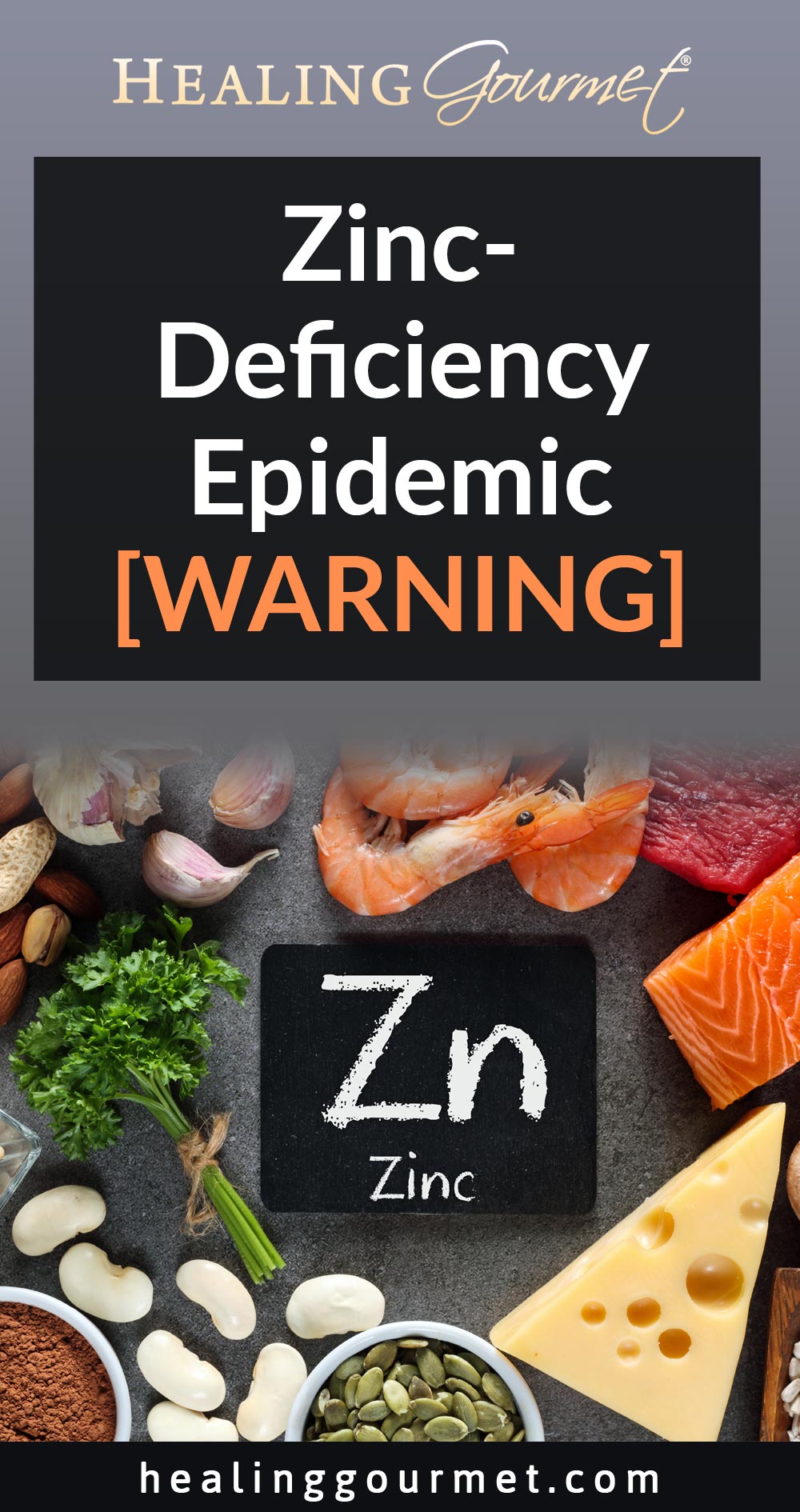
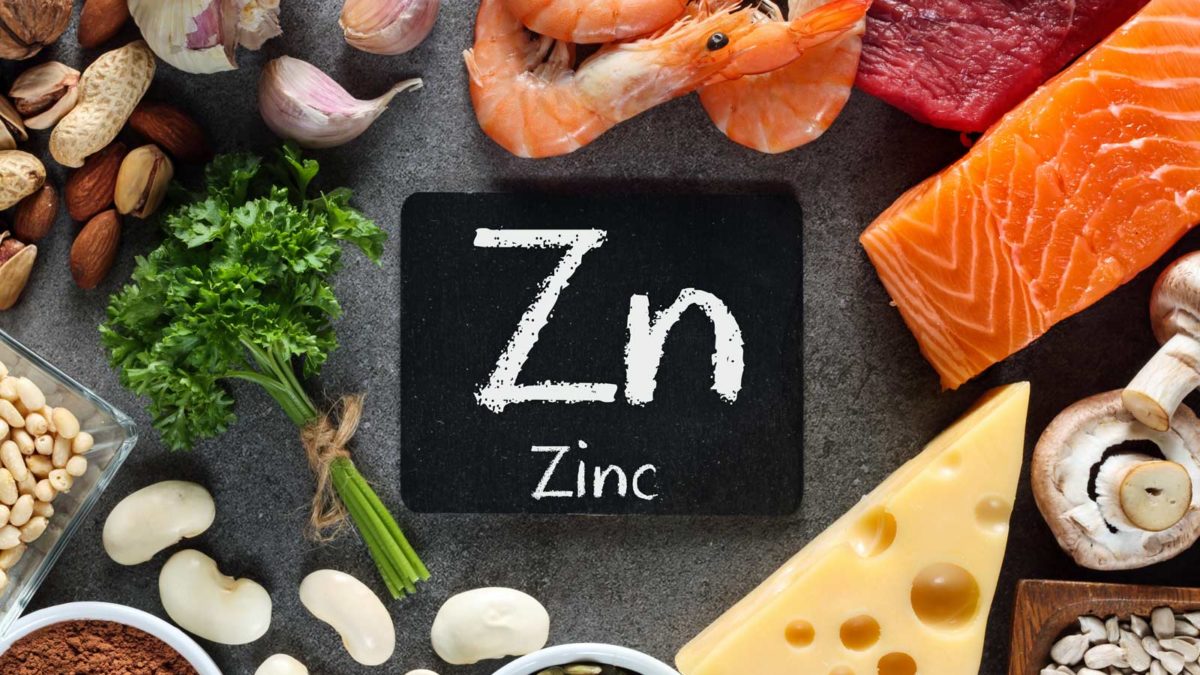
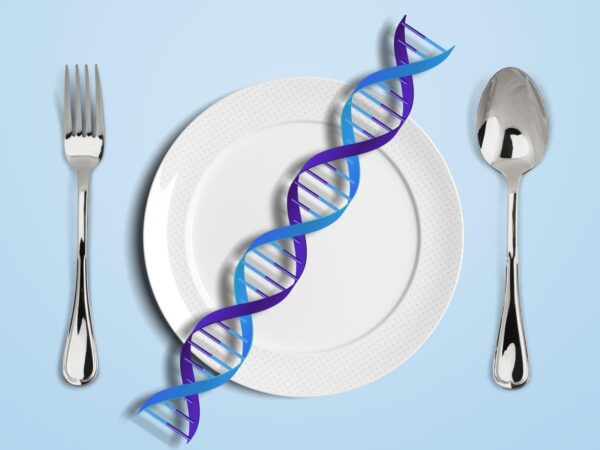
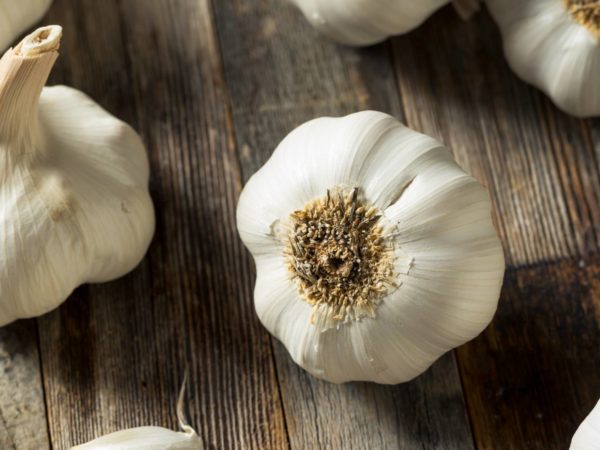
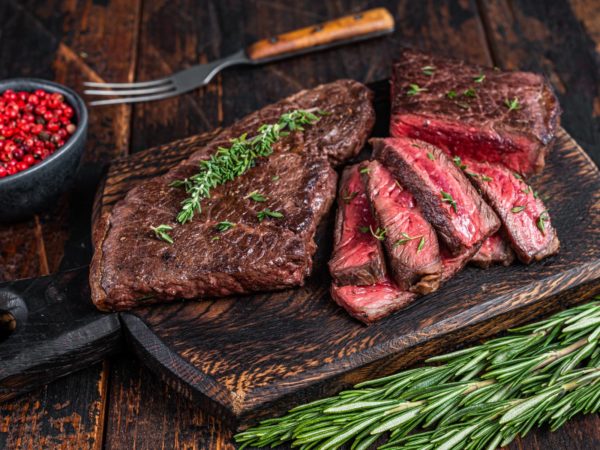
Leave a Reply